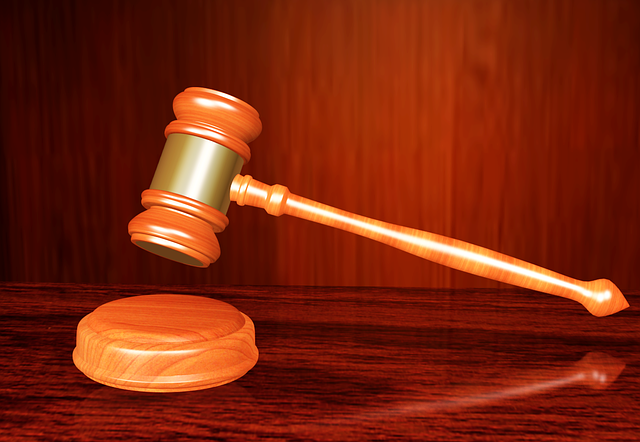RF Regulatory Agency investigations balance public safety with fostering innovation, employing distinct burdens of proof in civil vs. criminal cases. While civil proceedings use a preponderance of evidence, requiring factual arguments, criminal investigations demand guilt beyond a reasonable doubt, leading to potentially harsher consequences. Understanding this difference is crucial for businesses and legal strategizing, impacting outcomes from fines to license revocations. Case studies highlight how these standards are applied, emphasizing the importance of meticulous record-keeping for successful defense strategies.
“RF Regulatory Agency Investigations: A Comprehensive Guide to Understanding Proof Requirements. This article offers a detailed exploration of RF investigations conducted by regulatory agencies, focusing on the distinct burdens of proof in civil and criminal proceedings. We’ll dissect key differences between civil and criminal burden of proof, provide real-world case studies, and guide companies through navigating these diverse requirements. Gain insights into the implications for businesses facing RF regulatory scrutiny.”
- Understanding RF Regulatory Agency Investigations: A Comprehensive Overview
- The Nature of Civil and Criminal Burdens of Proof in RF Investigations
- Key Differences Between Civil and Criminal RF Inquiry Procedures
- Implications for Companies: Navigating the Diverse Proof Requirements
- Case Studies: Examining Real-World Scenarios and Outcomes
Understanding RF Regulatory Agency Investigations: A Comprehensive Overview

RF Regulatory Agency Investigations play a pivotal role in ensuring compliance with radio frequency (RF) standards and promoting safe, efficient use of RF technologies. These investigations are triggered by suspected violations of regulations governing RF devices, emissions, or related activities. What sets them apart from typical legal proceedings is the distinction between civil and criminal burdens of proof. In civil cases, the standard is typically a preponderance of evidence, meaning the agency need only prove their case more likely than not. This contrasts with criminal investigations where the burden lies on proving guilt beyond a reasonable doubt—a higher threshold designed to protect individuals from false accusations.
Understanding this difference is crucial for entities under scrutiny. While civil investigations often lead to fines or orders for compliance, achieving a complete dismissal of all charges is possible through robust legal defense strategies. Skilled attorneys can navigate the complexities of RF regulations and present evidence to clear their clients’ names, avoiding indictment and achieving extraordinary results. This overview highlights the importance of proactive measures to ensure RF device safety and compliance, ultimately fostering innovation while respecting stringent legal standards.
The Nature of Civil and Criminal Burdens of Proof in RF Investigations

In RF (Radio Frequency) regulatory agency investigations, understanding the nuances between civil and criminal burdens of proof is paramount. While both aim to uncover truth and enforce compliance, their approaches significantly differ, especially in high-stakes cases involving prominent respective business across the country. In civil proceedings, the standard of proof leans towards a preponderance of evidence, meaning the burden lies on the plaintiff or complainant to show that a claim is more likely than not true. This often involves presenting factual arguments and expert opinions to tip the scales in their favor.
Conversely, criminal cases demand a far higher threshold of proof – beyond a reasonable doubt. This stricter standard requires prosecutors to convincingly demonstrate guilt to a jury without any reasonable alternative explanations. The difference is crucial, as it dictates the level of scrutiny, resources, and potential consequences for businesses involved in RF investigations. Across the country, regulatory agencies must balance these disparities while ensuring justice is served in each unique case.
Key Differences Between Civil and Criminal RF Inquiry Procedures

When navigating RF Regulatory Agency investigations, understanding the key differences between civil and criminal inquiries is paramount for both corporate and individual clients. The primary distinction lies in the burden of proof. In a civil inquiry, the onus is on the regulator to prove that a violation has occurred by a preponderance of evidence. This standard requires the agency to demonstrate that the evidence leans more heavily towards liability. Conversely, in a criminal investigation, the government must convince a jury beyond a reasonable doubt of the defendant’s guilt. This higher burden necessitates proving each element of an offense with unwavering certainty.
Another crucial separation is the impact on potential outcomes. Civil inquiries often result in administrative penalties, licensing restrictions, or orders to remedy violations. These proceedings typically do not involve imprisonment. In contrast, criminal investigations can lead to substantial fines, jail time, and permanent license revocations. The nature of these consequences demands a heightened focus on compliance for both corporate and individual clients, particularly within the philanthropic and political communities, where reputational damage and public scrutiny are ever-present.
Implications for Companies: Navigating the Diverse Proof Requirements

When it comes to RF Regulatory Agency investigations, companies face a unique challenge in understanding and navigating the diverse proof requirements. These inquiries often involve intricate legal complexities, particularly when distinguishing between civil and criminal burdens of proof. While the former requires a preponderance of evidence, demonstrating that a fact is more likely than not, criminal cases demand a higher standard—proving guilt beyond a reasonable doubt. This distinction is paramount for companies, especially in high-stakes cases involving corporate and individual clients, as it dictates the level of preparation and documentation needed to defend against allegations.
The implications are significant, as meeting these proof requirements can mean the difference between a complete dismissal of all charges or a substantial fine and reputational damage. Companies must meticulously document their processes, maintain comprehensive records, and employ legal strategies tailored to each case’s unique circumstances. This meticulous approach ensures that they remain compliant while safeguarding against overreaching regulatory actions.
Case Studies: Examining Real-World Scenarios and Outcomes

In RF Regulatory Agency investigations, case studies offer invaluable insights into the real-world application of rules and regulations. These scenarios provide a nuanced understanding of how different legal standards are met or violated, ultimately shaping outcomes for respective businesses. Examining past cases helps in gauging the regulatory body’s approach to similar infringements, from minor violations to more significant white-collar defense issues.
When analyzing these case studies, paying attention to the differences between civil and criminal burdens of proof is crucial. Civil cases often require a preponderance of evidence, while criminal cases demand beyond a reasonable doubt. This distinction significantly influences the strategy and potential outcomes for businesses facing regulatory investigations, including the possibility of a complete dismissal of all charges.
RF Regulatory Agency investigations demand a nuanced understanding of the contrasting civil and criminal burdens of proof. While civil inquiries focus on demonstrating compliance and potential liability, criminal proceedings require proving guilt beyond a reasonable doubt. This article has explored these key differences, highlighting the implications for companies facing RF regulatory scrutiny. By grasping these distinctions, businesses can more effectively navigate diverse proof requirements, ensuring they meet their obligations and mitigate potential risks associated with RF investigations.






